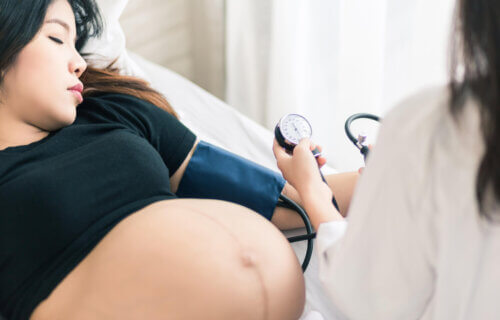STAFFORDSHIRE, U.K. — According to a new study, older women who undergo infertility treatments such as in vitro fertilization (IVF) may have an increased risk of complications such as acute kidney damage and heart problems.
Assisted reproductive technology (ART) is the umbrella term for infertility treatments. Since 1978, ART such as IVF treatments has helped create over 5 million individuals worldwide. In the United States, more than 2% are born via ART.
As more women delay getting pregnant, ART helps increase the chance of getting pregnant when they’re older. However, a delayed pregnancy increases the risk of birth complications when a woman reaches a certain age.
“Older women are increasingly turning to assisted reproductive technology. However, advancing maternal age — specifically being age 35 and older—increases the risk of having or developing conditions, such as chronic high blood pressure, that increase the risk of pregnancy complications,” says Professor Pensee Wu, of Keele University, Staffordshire, lead author of the study in an American Heart Association media release.
Prior research has shown advanced maternal age increases the risk of high blood pressure — a risk factor for heart disease — during pregnancy. However, it is unclear how ART may contribute to health risks for the baby and mother.
From January 2008 to December 2016, the team analyzed over 106,000 deliveries in the United States conceived with ART. Another 34 million deliveries that did not use ART served as the control group for comparison. The researchers also extracted cardiovascular and pregnancy-related complications records from the U.S. National Inpatient Sample data.
Increased health complications in older women using infertility treatments
On average, women who conceived with ART were seven years older than people who delivered without the help of ART (35 vs. 28). Women using ART were also more likely to have preexisting health conditions, such as chronic hypertension, obesity, and diabetes.
The current study found a 38% increase in C-sections and a 26% rise in premature births when women are of advanced maternal age. In addition, women of advanced maternal age are also 57% more likely to experience placental abruption. Placental abruption is when the placenta separates from the lining of the womb.
Women had a 65% increased risk of developing an irregular heartbeat. They were also 2.5 times more likely to have acute kidney damage.
“We were surprised assisted reproductive technology was independently associated with these complications, as opposed to being associated with only the existence of preexisting health conditions or only among older women undergoing infertility treatment,” Dr. Wu says. “A better understanding of the potential impact of assisted reproductive technology on women’s risks for cardiovascular- and pregnancy-related outcomes will help inform women considering assisted reproductive technology and is valuable after birth to develop cardiovascular risk reduction strategies.”
The study is available to read in the Journal of the American Heart Association (JAHA).
South West News Service writer Mark Waghorn contributed to this report.
